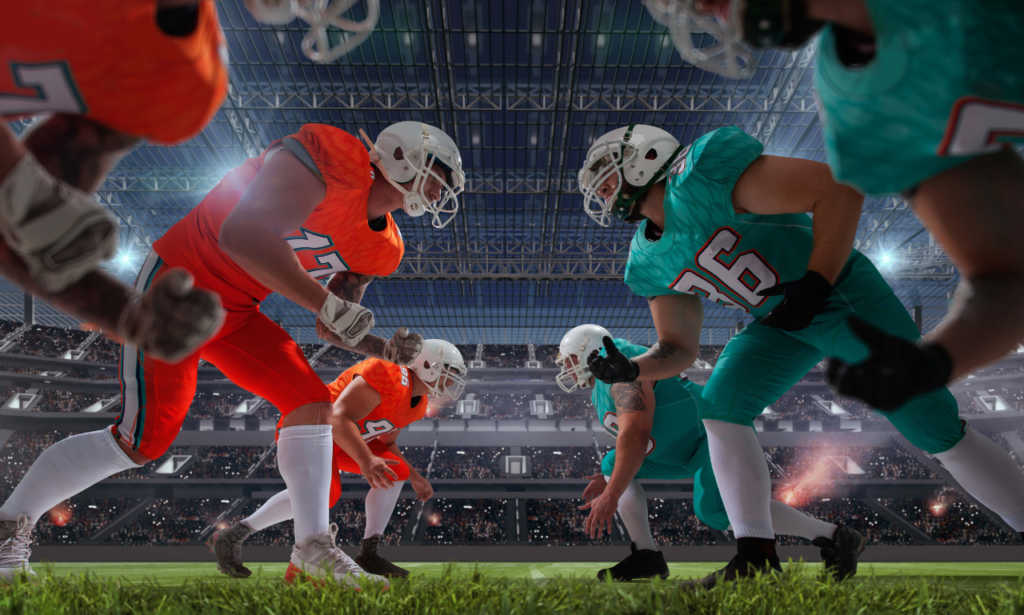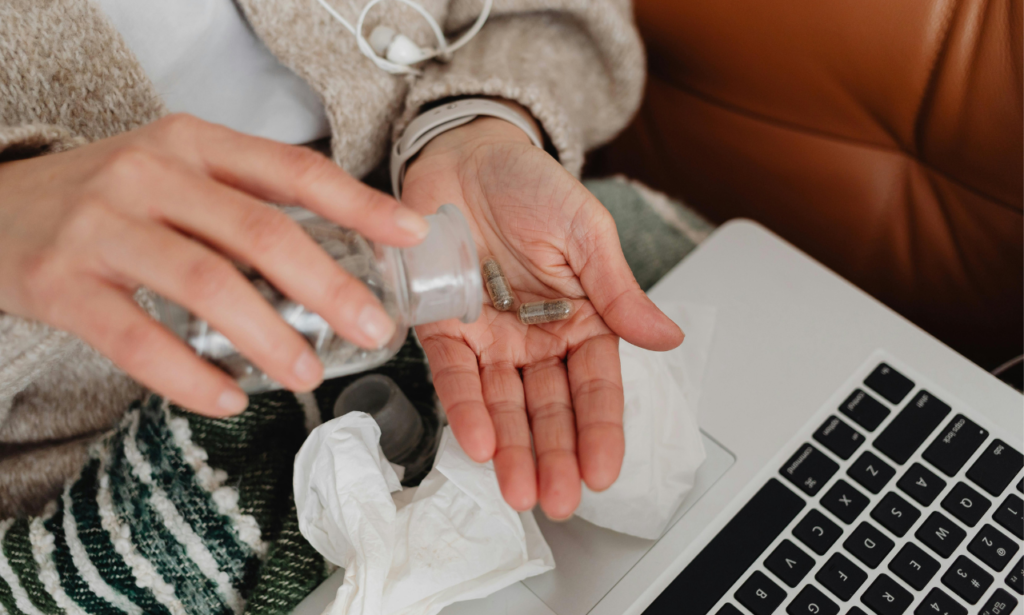The National Football League (NFL) is one of the most watched sports leagues in the world, known for its high-intensity games and incredible athletic performances. But behind the scenes, the NFL is also known for its strict policies to ensure that these performances are fair and clean. One of the key components of this fairness is the NFL’s Performance-Enhancing Drugs (PED) Policy.
In this article, we’ll dive deep into the NFL’s PED Policy, exploring what it is, how it works, and why it’s so crucial to the integrity of the game. By the end, you’ll have a clear understanding of how the league handles performance-enhancing drugs and the consequences for those who break the rules.
Understanding the NFL’s PED Policy
What Are Performance-Enhancing Drugs?
Before we get into the specifics of the NFL’s PED Policy, it’s important to understand what performance-enhancing drugs are. These substances are used by athletes to improve their physical abilities, giving them an unfair advantage over their competitors. Common PEDs include anabolic steroids, human growth hormone (HGH), and stimulants.
These drugs can enhance an athlete’s strength, speed, endurance, and recovery time. However, they come with significant health risks, including heart problems, liver damage, and psychological effects. The use of PEDs also undermines the integrity of the sport, leading to unfair competition.
The Evolution of the NFL’s PED Policy
The NFL’s PED Policy has evolved over the years in response to the changing landscape of drug use in sports. The league first introduced drug testing in the 1980s, but the policy has become increasingly comprehensive and strict as the science of doping and detection has advanced.
Today, the NFL’s PED Policy is one of the most stringent in professional sports, with a focus on both education and enforcement. The policy is designed to deter players from using banned substances while ensuring that those who do face serious consequences.
How Does the NFL’s PED Policy Work?
Testing Procedures
One of the cornerstones of the NFL’s PED Policy is its rigorous testing procedures. The league conducts random drug tests throughout the year, and players can be tested at any time, whether during the season or in the offseason. This unpredictability is key to deterring drug use, as players never know when they might be tested.
Testing is conducted by an independent agency, which ensures that the process is fair and unbiased. Samples are collected under strict protocols to prevent tampering, and they are analyzed in state-of-the-art laboratories.
Types of Tests
The NFL uses a variety of tests to detect different types of performance-enhancing drugs. These include urine tests, blood tests, and even tests for specific substances like HGH. The league also tests for other banned substances, including recreational drugs like marijuana and cocaine, though these fall under a different policy.
The testing process is comprehensive, covering a wide range of substances to ensure that no player can gain an unfair advantage.
Substances Covered Under the NFL’s PED Policy
The NFL’s PED Policy covers a broad range of substances, which are divided into different categories:
- Anabolic Steroids: These are synthetic variations of testosterone that promote muscle growth and strength. They are among the most commonly used PEDs in sports.
- Human Growth Hormone (HGH): HGH is used to increase muscle mass and improve recovery times. It’s a naturally occurring hormone, but synthetic versions are banned in the NFL.
- Stimulants: These substances, such as amphetamines, are used to enhance focus, energy, and endurance. However, they can also lead to dangerous health consequences.
- Diuretics and Masking Agents: These are used to flush other drugs out of the system, making them harder to detect. The NFL has strict penalties for using these substances to avoid detection.
Education and Prevention
The NFL is not just about punishing those who break the rules; it also focuses on education and prevention. Every year, players attend mandatory education sessions where they learn about the dangers of performance-enhancing drugs and the specifics of the league’s policy.
These sessions are designed to inform players about the health risks associated with PEDs, as well as the consequences they could face if they choose to use them. The league also provides resources for players who need help with substance abuse, offering support and treatment options.
Consequences for Violating the NFL’s PED Policy
First Offense
The NFL takes violations of its PED Policy very seriously. For a first offense, a player is typically suspended for four games without pay. This suspension can have a significant impact on the player’s career, not only because they lose a portion of their salary, but also because they may lose endorsement deals and damage their reputation.
A first offense also serves as a wake-up call, reminding players of the league’s commitment to maintaining a level playing field.
Second Offense
If a player is caught violating the NFL’s PED Policy a second time, the consequences become more severe. A second offense typically results in a six-game suspension without pay. Additionally, the player may be required to undergo additional testing and counseling as part of their return to the field.
A second offense can severely damage a player’s career prospects, as teams may be less willing to take a chance on a player with a history of PED use.
Third Offense
A third offense under the NFL’s PED Policy can result in a minimum one-year suspension. This is a serious penalty that can be career-ending for many players. During this time, the player is not allowed to participate in any team activities, including training camp and preseason games.
After serving the suspension, the player must apply for reinstatement to the NFL. The league will then review the case and decide whether the player should be allowed to return. Reinstatement is not guaranteed, and the player’s conduct during the suspension period is a critical factor in the decision.
Appeals Process
Players who are found to have violated the NFL’s PED Policy do have the right to appeal the decision. The appeals process is designed to ensure that players have a fair opportunity to present their case and challenge the findings.
The appeal is heard by an independent arbitrator, and the player can present evidence and testimony in their defense. However, the burden of proof is on the player, and successful appeals are rare.
The Impact of PEDs on the NFL
Health Risks and Ethical Concerns
The use of performance-enhancing drugs poses significant health risks to athletes. These drugs can lead to serious health problems, including heart disease, liver damage, and psychological issues. Additionally, PED use raises ethical concerns, as it creates an uneven playing field and undermines the integrity of the sport.
The NFL’s commitment to enforcing its PED Policy is driven by a desire to protect the health of its players and maintain the integrity of the game.
High-Profile Cases
Over the years, there have been several high-profile cases of NFL players being suspended for violating the PED Policy. These cases often make headlines and serve as a reminder of the league’s strict stance on PEDs.
For example, in 2013, linebacker Von Miller was suspended for six games after testing positive for a banned substance. More recently, in 2019, wide receiver Golden Tate was suspended for four games for using a fertility drug that was on the NFL’s banned substance list.
These cases highlight the importance of the NFL’s PED Policy and the consequences of violating it.
Step-by-Step Guide: What Happens When a Player Violates the NFL’s PED Policy?
If you’re wondering what happens when a player is found to have violated the NFL’s PED Policy, here’s a step-by-step breakdown:
Step 1: The Test
The process begins with a random drug test. The player is notified and required to provide a urine or blood sample. The sample is collected under strict protocols to ensure it is not tampered with.
Step 2: Analysis
The sample is sent to an independent laboratory for analysis. The lab tests the sample for a wide range of banned substances, including steroids, HGH, and stimulants.
Step 3: Notification of Positive Result
If the test comes back positive for a banned substance, the player is notified of the results. At this point, the NFL begins the process of determining the appropriate consequences.
Step 4: Initial Suspension
For a first offense, the player is typically suspended for four games without pay. This suspension is automatic and does not require a hearing.
Step 5: Appeal (Optional)
The player has the right to appeal the suspension. If the player chooses to appeal, the case is heard by an independent arbitrator. The player can present evidence and argue that the positive result was due to a mistake or other extenuating circumstances.
Step 6: Enforcement of Suspension
If the appeal is unsuccessful, the suspension is enforced. The player is not allowed to participate in games, practices, or any team activities during the suspension period.
Step 7: Return to Play
After serving the suspension, the player is eligible to return to play. However, they may be subject to additional testing and monitoring to ensure they are complying with the NFL’s PED Policy.
also read: Big News: Deborah Hoffman Volleyball Coach Accepted New Position
Conclusion: The Importance of the NFL’s PED Policy
The NFL’s PED Policy plays a crucial role in maintaining the integrity of the game. By enforcing strict rules and penalties, the NFL ensures that all players are competing on a level playing field, free from the influence of performance-enhancing drugs.
This policy not only protects the health of the players but also upholds the ethical standards of the sport. As fans, we want to know that the incredible feats we
- Life Style Cool Shit Project: Redefine Your Space at LifeStyledCo - January 6, 2025
- Picuki: Your Gateway to Accessing Instagram’s Exclusive Content - December 31, 2024
- 5 Attractive Places to Visit in Abha, Saudi Arabia - December 18, 2024



